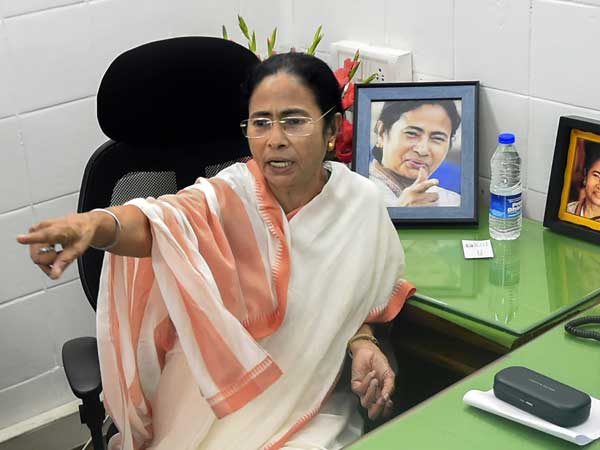
West Bengal, that is Bangla or maybe Banga, is once again proving to be the aberration in Indian politics that it has historically been. In the early nineteenth century the Bengal renaissance fired the ambition to bring in liberal ideas in an atmosphere of orthodoxy. At a time that communism was dying elsewhere in the world, it stubbornly kept voting the communists back to power year after year. When caste politics was the mainstay of Indian politics, it refused to allow caste equations to come into play in state politics. Now, like some anti hero, the party in power in the state occupies the most prominent space in the opposition ranks that have been all but rendered irrelevant by Narendra Modi’s BJP.
Banerjee could be the strongest leader in the state at this juncture even as her party lords over West Bengal politics. But the rightwing majoritarian pushback is happening. The Sangh Parivar and other forces under its umbrella are tenacious adversaries. They are patient and systematic, drawing up goals and then moving towards them. In no apparent hurry. In time, if their plan succeeds, more people will believe in the rightwing narrative associating the West Bengal chief minister with minority appeasement at the cost of the majority community. The draft of the National Register of Citizens in Assam has come at about the right time, in the slow build-up to the next Lok Sabha elections. It will give the Sangh Parivar ample opportunity to attempt a change in the political DNA of the West Bengal voter.
Her proximity to the state's sizeable Muslim constituency goes back some distance. Take the Nandigram agitation against land acquisition for instance. The landowners were predominantly Muslim and they were the principal beneficiaries of her movement targeted at the Left Front government of the time headed by chief minister Buddhadeb Bhattacharya. But, symbolism aimed at the minorities is not a recent addition to her politics. During Ramzan, she has been known to break fast along with Muslim members of her party.
However, she could also be ambiguous on the issue. In exiled Bangladesh author Taslima Nasreen's case, she allowed her seemingly liberal values to be trampled upon by reactionary Muslim elements after the ban was lifted on the writer's 2003 book 'Dwikhandito'. When asked, she merely said that the centre was looking into the matter. It is difficult to imagine such a tame response from someone so feisty. The subtext was, she looked at the big picture when reaching out to minorities. The constituency is more important than the need to protect liberal values. It leaves her with poor defence when facing the charge of minority appeasement.
For the record, Banerjee belongs to a long and illustrious line of politicians who have been accused of minority appeasement. Going by records, the Indian political class first dabbled in such an effort when the Congress party at the urging of Mahatma Gandhi decided to support the Khilafat Movement. The underlying purpose was to secure their active participation in the national movement and support for causes identified with orthodox Hindus. Of course then, like now, the Congress was ambiguous about seeking Muslim support for Hindus.
Bengal has won some stellar battles in the fight against orthodoxy and majoritarian sentiment -- indicating also that there are a large number of adherents to such thought. The Belur Math of Ramakrishna Mission was an early victim. In its initial years, it faced opposition from orthodox villagers because a lot of people, including foreigners, freely entered it. It took a while for the message of Ramakrishna Mission to spread and for the villagers to welcome the missionaries. That was a significant victory for liberal thought and for Vivekananda's ideas challenging blind orthodoxy and social evils like the caste system.
But that was only part victory. Rightwing sentiment was consolidated against the background of partition. It is no small miracle that it stayed at the subliminal level and was not allowed to dominate the state's politics. Till now. The BJP can be expected to push through the advantage. The aggressive position that the party has taken on the issue is likely to win some mindspace. The push back is accompanied by a modest reversal of fortunes for the party in some states where it appeared to be facing anti-incumbency -- Rajasthan, Madhya Pradesh and Chhattisgarh.
Election results in West Bengal do not adequately capture the rise of the rightwing for which there is right now only one claimant -- the BJP. The noise accompanying her firebrand version of politics does not record the silent change taking place on the ground in the state. Some might believe that where her minority appeasement ends her identity as a Kali devotee begins and that she could have the best of both worlds. However, in the view of her detractors, she has gone too far the other way to do a U-turn to display her Hindu colours in a way that would be politically rewarding. Her anxiety for minority appeasement to stave off the challenge from the BJP could well have closed that door for her.
ananda.majumdar@mydigitalfc.com





